Veneers in Czech Republic
Search and Compare the Best Clinics and Doctors at the Lowest Prices for Veneers in Czech Republic
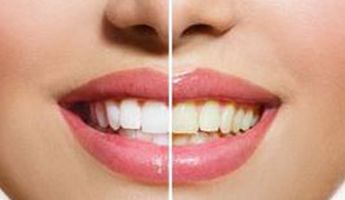
Find the best clinics for Veneers in Czech Republic
No pricing info available
Vietnam offers the best prices Worldwide
Price: $ 1
Canadian Medical Care, located in Bucharova, Prague, Czech Republic offers patients Veneers procedures among its total of 210 available procedures, across 6 different specialties. Currently, there's no pricing information for Veneers procedures at Canadian Medical Care, as all prices are available on request only. All procedures and treatments are undertaken by the lead specialist at the Hospital, and they are not accredited by any recognized accreditations institutes
- Home
- Czech Republic
Compare Before & After Photos of _procedure_photos.phpVeneers
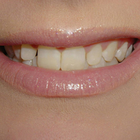
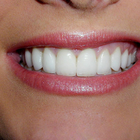
Front view
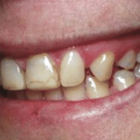
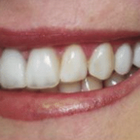
Half-side view
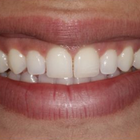
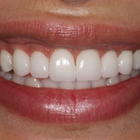
Front view
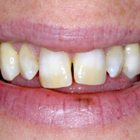
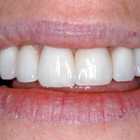
Front view
WHY US?
At Medijump, we're making medical easy. You can search, compare, discuss, and book your medical all in one place. We open the door to the best medical providers worldwide, saving you time and energy along the way, and it's all for FREE, no hidden fees, and no price markups guaranteed. So what are you waiting for?

Free

Best Price

Widest Selection

Risk-Free
What you need to know about Veneers in Czech Republic

Dental veneers are thin covers that are attached to the surface of teeth to enhance their appearance. The non-invasive dentral procedure is previously popular among those with damaged or discolored teeth. Nowadays, however, the procedure is seen as the ideal method of achieving the ‘perfect smile.'
Veneers can be used to hide uneven, misaligned or simply imperfect teeth. The veneers are cemented over the existing teeth and fixed into place – there are two main types of veneer; Porcelain and Composite. Porcelain veneers are more expensive and appear more natural, being made in a laboratory so require multiple visits. There is often the need to alter the existing teeth, removing some of the mass. Composite veneers are made of the same materials used for cavity fillings. They can usually be made quickly, and are sculpted directly on the teeth instead of in a laboratory. Thus allowing the procedure to be done in a day.
What does a Veneers Procedure Involve?
Veneers are used primarily for aesthetics. This type of treatment procedure is perfect for people who have gaps in their teeth, stains, as well as people who may have chipped a tooth. Veneers are custom-made shells designed to fit the shape of your teeth and to be attached to your front teeth to improve the size, shape, color, and length.
Two main types of veneers are:
- Composite Veneer - this type can be created by your dentist on the same day and directly applied to your teeth. You will only need a single appointment to complete the procedure.
- Porcelain Veneer - this type is manufactured in a laboratory. Opting for a porcelain veneer will require you to have two appointments. First, is to prepare your teeth (enamel removal) and mold a model of your teeth to be created in the lab. The second is to finally cement your veneers onto your teeth.
The most commonly used type of Veneer is the Porcelain Veneer as it appears more natural and can resist stains better than composite veneers. Besides the two main types of veneers, some dentists may also offer no-prep veneers. These may include specific brands of procelain veneers like Vivaneers and Lumineers. They are less invasive to apply since the layers of tooth under the enamel aren't removed.
In terms of anesthetics, local anesthesia is not usually required while undergoing the whole procedure. However, depending on how you handle pain and discomfort, you may request to receive local anesthesia or sedation.
Aside from giving you a pleasing smile, veneers are resistant to staining and offer the best fix to broken or damaged teeth.
How Long Should I Stay in Czech Republic for a Veneers Procedure?
This type of procedure is an outpatient treatment, meaning you may be able to go home after undergoing the procedure. However, you will be required to do a follow-up check-up with your dentist to assess the placement of your veneers and in most cases, the procedure has to be carried out over 2 separate occasions, just a day or two apart. Since this is a non-invasive treatment, stitches are not required, but you will be required to stay in Czech Republic for at least a few days.
What's the Recovery Time for Veneers Procedures in Czech Republic?
There is actually no recovery time after the placement of your veneers. You can also return back to your daily routines including exercise immediately after your trip. As for the enamel removal, you may experience some mild discomfort for about a week. It is best that you avoid very hot or cold foods, including hard, chewy or crunchy food. When your sensitivity wears off, you can return to your normal dietary habits.
What sort of Aftercare is Required for Veneers Procedures in Czech Republic?
Once your dental veneers have been placed and you have completed the whole procedure, you should commit yourself to good oral hygiene, regular visits to your dentist and a good healthy lifestyle. Dental Veneers can last beyond 10 years now, however, just like your natural teeth, veneers are also still susceptible to damage. This is why aftercare is very important to help with the longevity of your new teeth.
What's the Success Rate of Veneers Procedures in Czech Republic?
Over the past years, many studies have reported that over 91% of people who have had dental veneers experienced highly positive results. However, potential risks and side effects after undergoing this procedure are a possibility. Just like any other dental restoration, dental veneers can have some side-effects, for example:
- Tooth sensitivity - since this procedure will require the removal of some enamel, your teeth will become slightly sensitive, following the placement of your veneers.
- Response from gum tissues - your gum tissue might take some time to adjust to your newly placed veneers. Expect to have some minor inflammation and/or discomfort in your gums.
- Risk of trauma - once your teeth’s enamel is removed, it will become more sensitive, thus it will be even possible for the pulp within your teeth to die.
- Possible Issues with placement - it's possible for your teeth to have issues with decay or chipping along the outer portion of your veneers. Gum irritation may also be possible. Other problems may include rough-edged veneers and overhanging veneers.
- Overall Discomfort - experiencing some discomfort after the procedure is to be expected. If you are particularly sensitive, it is advisable that you take an over the counter medication to help you relax and treat your pain.
Are there Alternatives to Veneers Procedures in Czech Republic?
You also have to be aware that this type of treatment option is not for everyone. If you are not a good candidate to undergo the procedure, note that there are still possible alternatives that will be suited for you. These alternatives may include:
Orthodontics - if you have severely crooked teeth or malocclusion, dental veneers are not for you. You may want to consider a more comprehensive orthodontic procedure to treat your case.
Dental crowns - these are quite similar to dental veneers. These are also custom-made to match the shape of your teeth. However, unlike veneers, a crown extends all the way around your tooth, meaning your dentist will remove a large portion of your dental structure. These crowns are perfect for patients who have considerable damage that affects the strength and structure of their teeth.
Bonding - often called composite veneers. This is typically for patients with an insufficient amount of tooth enamel.
Whilst the information presented here has been accurately sourced and verified by a medical professional for its accuracy, it is still advised to consult with your doctor before pursuing a medical treatment at one of the listed medical providers
No Time?
Tell us what you're looking for and we'll reachout to the top clinics all at once
Enquire Now

Popular Procedures in Czech Republic
Prices Start From $1

Prices Start From $1

Prices Start From $48

Prices Start From $1

Prices Start From $1

Prices Start From $1

Prices Start From $11

Prices Start From $45

Recommended Medical Centers in Czech Republic for Veneers

- Interpreter services
- Translation service
- Religious facilities
- Medical records transfer
- Medical travel insurance
- Health insurance coordination
- TV in the room
- Safe in the room
- Phone in the room
- Private rooms for patients available

- Interpreter services
- Translation service
- Religious facilities
- Medical records transfer
- Medical travel insurance
- Health insurance coordination
- TV in the room
- Safe in the room
- Phone in the room
- Private rooms for patients available

- Interpreter services
- Translation service
- Religious facilities
- Medical records transfer
- Medical travel insurance
- Health insurance coordination
- TV in the room
- Safe in the room
- Phone in the room
- Private rooms for patients available

- Interpreter services
- Translation service
- Religious facilities
- Medical records transfer
- Medical travel insurance
- Health insurance coordination
- TV in the room
- Safe in the room
- Phone in the room
- Private rooms for patients available

- Interpreter services
- Translation service
- Religious facilities
- Medical records transfer
- Medical travel insurance
- Health insurance coordination
- TV in the room
- Safe in the room
- Phone in the room
- Private rooms for patients available
Veneers in and around Czech Republic
The Czech Republic is a landlocked country in Central Europe and it has a rich and eventful history, as well as amazing attractions. From medieval towns and magnificent castles to picturesque national parks and relaxing spa resorts, it has a lot to offer. The country also boasts top-quality healthcare and is emerging as a popular medical tourism destination. Medical procedures in the country are performed with the latest technology and techniques. The medical professionals are highly qualified, well trained, and internationally recognized. Besides, the cost of medical procedures in the country is extremely competitive. Medical tourists can make significant savings compared to most other countries in Europe. Cosmetic surgery is particularly popular among international medical tourists.
Popular Parts of Czech Republic
Prague is the capital and is popular for its fine dining, eccentric nightlife, and wonderfully preserved medieval buildings with Gothic architecture, such as Prague Castle, the 14th-century Charles Bridge, and the Astronomical Clock. Along with Prague, Ceský Krumlov and Brno are frequently visited by tourists as well.
Weather and Climate in the Czech Republic
Due to its location, the Czech Republic has a mostly temperate climate. Extreme weather is rare, but the summers can get hot and the winters cold. Summer starts in June and the days can be scorching hot. The average temperature is around 26°C, but in recent years, it tends to rise to 37°C. Winter, from November to March, can get rather cold. The average temperatures drop to around 2°C during the day and -2°C at night, with some snowfall and rain. Spring (March-May) and autumn (September – October) have beautiful weather.
Getting around in the Czech Republic
Václav Havel Airport Prague is the main airport where international visitors fly into and out of the Czech Republic. It serves numerous flights to many cities around Europe and Asia, including London, Moscow, Dubai, and Seoul. The Czech Republic has an affordable and reliable public transport system. Domestic flights are available, but rarely necessary. The rail network is affordable and very comprehensive, covering almost every city and town in the county. The bus also has extensive coverage throughout the country. Public transport within cities is also excellent. In major cities, you can opt for the metro, tram, bus, or trolleybuses. Taxis are widely available and are metered, but the fares are higher at night.
Tourist Visas in the Czech Republic
Nationals of all EU countries do not need a visa to visit and stay in the Czech Republic. The country is a part of the Schengen area, which means citizens of around 62 countries can stay for up to 90 days without a visa. These visa-exempt countries include Australia, Canada, the US, and South Korea. Citizens of other countries are required to apply for a visa before visiting the country. Those who want to receive medical care should obtain a Czech Republic Visa for Medical Purposes.
Additional Information
- Local Currency: Czech Koruna/Czech Crown (CZK) is the currency of the Czech Republic. 1 USD is equivalent to 22.98 CZK. Note that the euro is not widely accepted in the country.
- Money & Payments: ATMs are widespread around the Czech Republic. Major credit cards, such as MasterCard and Visa, are accepted for many types of transactions, but you may need to pay in cash for smaller amounts. Tipping is expected, especially in restaurants. Tip at least 10% of the bill.
- Local Language: The official and most commonly spoken language is Czech, but Slovak is widely spoken as well. Many people, particularly in major cities, can speak English and German.
- Local Culture and Religion: Most of the population is religiously unaffiliated and does not believe in God. However, Christianity is the largest religion. Judaism, Islam, Buddhism, and Paganism are also practiced by a small percentage of the population.
- Public holidays: New Year’s Day, Easter Monday, Liberation Day, Sts Cyril & Methodius Day, Jan Hus Day, Republic Day, and Czech Statehood Day are some of the most important public holidays in the Czech Republic.
Popular Searches
- Plastic Surgery in Thailand
- Dental Implants in Thailand
- Hair Transplant in Thailand
- Breast Augmentation Thailand
- Gastric Sleeve in Thailand
- Gender Reassignment Surgery in Thailand
- Laser Hair Removal in Bangkok
- Botox in Bangkok
- Dermatology in Bangkok
- Breast Augmentation in Bangkok
- Coolsculpting in Bangkok
- Veneers in Turkey
- Hair Transplant in Turkey
- Rhinoplasty in Turkey
- Stem Cell Therapy in Mexico
- Rhinoplasty in Mexico
- Liposuction in Mexico
- Coolsculpting in Tijuana
- Rhinoplasty in Korea
- Scar Removal in Korea
- Gastric Sleeve in Turkey
- Bone Marrow Transplant in India
- Invisalign in Malaysia
- Plastic Surgery in the Dominican Republic
- Tummy Tuck in the Dominican Republic
- Plastic and Cosmetic Surgery in Poland
- Rhinoplasty in Poland
- Hair Implant in Poland
- Dental Implants in Poland
- IVF in Turkey
